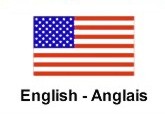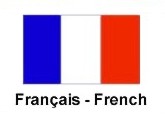OPERATION DEMOCRACY
369 Lexington Avenue
New York 17, N.Y.
MUrray Hill6-4986
Charity Is Not Enough
A Report From Europe on Town Affiliation
by - Charles L. Todd
The Burgomaster of Heusden aan den Maas stared solemnly at the letter from America, and passed it to the Chaplain.
The Chaplain turned it over several times, and with an apologetic shrug, handed it to the Committee Woman on his
right - who gave it immediately to the Schoolmaster. The latter adjusted his glasses, cleared his throat several
times, and began the arduous work of translating the letter into Dutch. After the letter had been read, the
discussion bounced in rapid Dutch from one side of the table to another. Finally, the Schoolmaster removed his
glasses, cleared his throat again, and turned to me with the verdict.
�Good friend from America,� he said warmly, �our Burgomaster and his committee have the great honor to accept
through you the magnificent offer of friendship from our new sister-city of Chico, in the state of California.
The Burgomaster also desires me to inform you that the ancient town of Heusden will address itself to this program
of affiliation with the utmost zeal, and hopes that on your return to America you will convey to the citizens of
Chico this small token of our affection and deep gratitude.�
With that, the Schoolmaster nodded to the Burgomaster who handed me a photograph album. The Committee Woman smiled
at the Chaplain. The Schoolmaster nodded his approval. A few minutes later, after many warm goodbyes, I was headed
once more along the River Maas - this time for an appointment, in behalf of the people of Tuxedo, N.Y., with the
Burgomaster of Engolen-Bokhoven.
This, with many variations, was typical of the role I was called upon to play last November and December by �Our
Town,� U.S.A., through the national clearing-house for town affiliation programs, Operation Democracy, Inc., of New
York. My only official credentials came from the city halls of American towns, and my letters of introduction were
from housewives, store-keepers, and school children. In my brief case were such items as a Rotary flag from
Wilkes-Barre, Pa., a leather-framed air-view of Wichita, Kansas, and a list of Boy Scouts from Rockland County,
N.Y. Replacing these on the return trip was a piece of tile from the blitzed home of Jeanne d'Arc, innumerable
photograph albums, and souvenirs of all shapes and. sizes for delivery to a �sister-city� in America.
In short, �Our Town� had asked me to drop in on some neighbors overseas, in some cases to make a proposal, and in
others just to find out how things were going. Before I got through, I had leaned over a lot of' back fences in
France, Holland and Luxembourg; sampled more vin du pays than was good for me and promised to look up nearly five
hundred �cousins in America.�
I think I also learned a few things about the ordinary people in the small towns of these three friendly countries
which the folks back home should know.
This business of town affiliation or �adoption� is merely an expression of the growing feeling down in the American
grass roots that governments can't do everything. It is also a manifestation of the almost frantic curiosity about
people in other places which has suddenly come over us as we witness the daily shrinkage of this already tight
little planet. Some say it began when Dunkirk, New York, adopted Dunkerque, France, on Thanksgiving Day, 1946.
Texans say it all started when thier town of Seminole invited the folks of Seminole, Oklahoma, over for the day. No
matter where it started, the fact is that nearly a hundred and fifty American cities are doing it - with
communities in France, Holland, Luxembourg, Italy, Germany and Finland. Dozens more, judging from mail received at
Operation Democracy, want to do it. O.D., however, felt that it was time for a quick look at the overseas picture
before going any further.
In a rather obvious way, the process of town affiliation is like a courtship. The suitor, an American village or
town, makes the first move - a cable through Operation Democracy, a letter signed by the Mayor, or a proclamation
from the city council, followed by a token gift of candy or a fancy leather folder containing air-views and
Chamber of Commerce statistics for the desk of the overseas mayor. Here is a tactfully worded suggestion that the
European town tell something about itself ... its needs, war damage, chief industries, etc. After such overtures,
the hopeful suitor settles back to counting the time it takes for a cable or a letter to be answered.
It is sometimes a long wait.
Last September, for instance, Morganville, Kansas, adopted F�ves, France, a battered little Lorraine village in the
hills above the Moselle, not far from the city of Metz. Morganville courted F�ves in Western style, with an
ice-cream social to raise money, a two-hour pageant called �Message to F�ves,� a network broadcast by the Governor
of Kansas, and an initial collection of gifts which would have done credit to a full- sized city. They told their
adopted town the story of their own hardships and of their admiration for towns like F�ves which bore the brunt of
battle. They were careful to be modest. Their letter to the mayor of F�ves was full of understatement and very
moving. October and November passed. There was still no word from F�ves. Morganville wondered what had gone wrong
and some even wondered if there was a town called F�ves.
Late one cold afternoon in early December in company with two officials of Entr'Aide Francaise, I drove up the
steep and stony road that leads through the plum orchards to F�ves. Along the single winding street, the houses
were dark and lifeless, some still showing the effects of American artillery fire. The schoolhouse, as we approached
it, was ablaze with light, however, and a delegation waited on the steps to greet us. Once inside, I discovered why
the rest of the town was deserted. Everyone in F�ves was at the schoolhouse. Morganville hadn't been forgotten.
After the songs of the school children, speeches by the Mayor and the Cure [i.e. priest], and the official
presentation to me as a representative of Morganville, of dozens of letters, photographs and other tokens of F�ves'
gratitude, I went off with the beaming Mayor and the schoolmaster for a quiet talk in the kitchen of the Mayor�s
damp, unheated house. There I asked the question which had disturbed me all through those moving ceremonies at the
schoolhouse. �Why,� I asked, �since there is obviously so much gratitude and affection for Morganville here in F�ves,
haven�t you told them so?�
The two men were silent for a moment, and I felt perhaps I had been too abrupt. The Schoolmaster was the first to
speak.
�We are desolated about it,� he said in his (for me) difficult French, �but now that we understand, we will do our
part.�
The Mayor nodded. vigorously, and waited for the Schoolmaster to continue.
�F�ves has been deeply touched from the beginning,� the Schoolmaster went on. �It is, however, a most difficult and
delicate thing. It is the season of Christmas, you know, and I was afraid my pupils might ask for things. We must
never be beggars here in F�ves.�
The Schoolmaster looked up at the Mayor who was following every word and weighing it solemnly.
�As for our Mayor, he is a distinguished man, but he is also a simple farmer, and words to fit such an occasion as
this are most difficult for him to find. One has great fear of being too forward ... America has already done so
much. We read of Morganville�s dust storms, their difficult past, of the boys from Morganville who died in the
Pacific, and here in France. They speak with great eloquence of these things. We have, perhaps, not enough
eloquence. After today, however, we will write - for we have a great deal in our hearts to say.�
It was a case of shyness and pride. Actually, I had guessed it before they told me, for I had watched the school
children earlier that day as my box of American candy was passed among them. Solemnly, delicately, each had taken
one piece and waited until the last child had been served. Then, with the same sober gesture, they had placed the
candy in their ragged pockets to be eaten later or shared at home. There must be no unseemly haste. It must be done
gracefully, for this was precious. It was from America, and all part of a very important moment. The candy meant
friendship - not charity. And friendship was a solemn thing.
...

